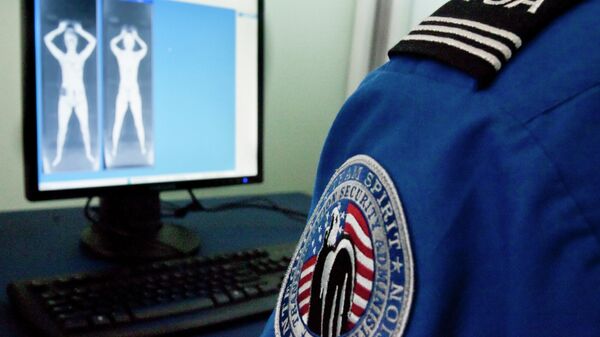While airports in Denver, Colorado; as well as in Las Vegas and Reno, Nevada, don't allow pot in their facilities, Los Angeles International (LAX) in California, one of the world's busiest airports, allows travelers over the age of 21 to carry marijuana. Similarly, Washington's Sea-Tac and Oregon's Portland International airports also allow weed within the confines of the area.
"It's a tangled web, for sure," said Dave Bannard, an attorney with Kaplan Kirsch & Rockwell LLP in Boston, who handles cases related to marijuana in airports, cited by Bloomberg.
"Airports are having to come to grips with this in a way that nobody expected a few years ago," Bannard noted.
However, across all airports in the US, personal weed is not allowed beyond the TSA security checkpoint, as the plant remains a "Schedule 1" drug under US law, alongside MDMA, heroin and methamphetamines.
According to Bloomberg, Portland police have responded to 83 calls related to travelers carrying marijuana in airports this year, compared to 74 last year. Los Angeles police spokesperson Rob Pedregon told Bloomberg that there is an increase in the number of TSA calls regarding pot.
"We've actually seen more of an increase in the checked luggage from people who don't really understand [California law,]" Pedregon said. "They go into the dispensaries and they say, ‘Oh, give me five pounds to take home to Texas with me."
"If you don't get searched, it doesn't mean you didn't break the law, it just means you got away with something-it's like bringing in Cuban cigars from Montreal," Bannard added.
‘Amnesty boxes' have been installed at several locations in the Las Vegas airport, Bloomberg reported, in which those who forgot to leave their weed at home can safely dispose of it.
Last month, Canada became the second country in the world, after Uruguay, to fully legalize recreational marijuana for domestic sale and consumption. The cultural shift has induced US and Canadian governments to issue travel reminders regarding marijuana laws in America.
"If a traveler is found to be coming to the US for reason related to the marijuana industry, they may be deemed inadmissible," US Customs and Border Protection (CBP) said in a statement last month. However, those who work in the marijuana industry but are visiting the US for an unrelated business "will generally be admissible to the US."
"I would say, as a general matter: Tell the truth, but answer questions like you're in a deposition. Answer the question truthfully and narrowly," Stanley Jutkowitz, a Washington attorney, told Bloomberg.
Traveling with marijuana or working in the industry could result in one's removal from the Transportation Security Agency's (TSA's) PreCheck or other US Trusted Traveler programs that speed up security check ins.
"As marijuana remains an illegal drug in the US, the use of it or involvement in the industry could make a person ineligible for Trusted Traveler membership," CBP spokesperson Stephanie Malin told Bloomberg.
In January 2017, former US Attorney general Jeff Sessions revoked an Obama-era policy that allowed legal marijuana businesses to flourish, which could have negative consequences on the burgeoning cannabis market.
Sessions repealed the Cole memo, a document prohibiting federal law enforcement officials from intervening in marijuana sales in states where the practice is legal. The repeal of the memo shifted federal policy from the previous hands-off approach of the Obama administration to allowing federal prosecutors across the US to individually decide how to allocate resources, potentially bringing charges for pot possession, distribution and cultivation, including in states where the prohibition on the plants use has been lifted.




